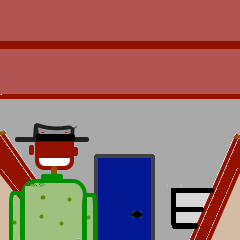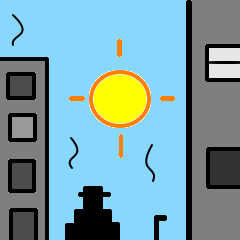“No, man,” said Araminta, addressing all six of the poets at the poets’ table, “you cats don’t understand! I am not a ‘lady poet’!”
“You mean to say,” said Seamas McSeamas, the Irish poet, “you’re one of them transvesticles? Because if you are, you sure fooled me!”
“No, Seamas, I am not what you call a ‘transvesticle’ – a word by the way I have never heard before and which I strongly doubt is even in the unabridged version of The Oxford Dictionary of the English Language – I am indeed a woman – yes, a lady if you prefer such old-fashioned nomenclature, but I most definitely am not a ‘lady poet’!”
She had lost Seamas, but for once he kept his trap shut, not wanting to upset the beautiful lady poet.
“What she’s saying, Seamas,” said Hector Phillips Stone, the doomed romantic poet, “– and please correct me if I’m wrong, Miss Sauvage –”
“Oh, call me Araminta, Hector. We are all fellow poets, and I see no need to stand on formality.”
“Very well, then – Araminta,” said Hector. “So, what I believe you are saying is that you consider yourself a poet first and foremost, and only secondarily a lady.”
“Secondarily nothing,” said Araminta. “I am a woman and I am also a poet, just as I am also presumably a human being. But I refuse to be limited by the appellation ‘lady poet’!”
“Hear, hear!” said Scaramanga, the leftist poet.
“But what I am about to say to you now, my fellow poets,” said Araminta, “may cause you some consternation.”
“Uh-oh,” said Howard Paul Studebaker, the western poet from Hackensack, New Jersey.
“I was born consternated,” said Frank X Fagan, the nature poet who hadn’t been closer to nature than Washington Square Park since 1939.
“Let the little lady speak,” said Lucius Pierrepont St. Clair III, the Negro poet.
“I shall let that diminutive pass for the nonce, Lucius,” said Araminta, “but only for the nonce.”
“My apologies, dear lady,” said Lucius, banned from every bar in Harlem because of his propensity for suddenly and loudly exclaiming his verse, but always welcome down here at Bob’s Bowery Bar, famous for its lenience to exercisers of poetic license. “I know all too well how ill-considered epithets can demean a person’s dignity, and I beg your forgiveness.”
“I may be small of frame and stature,” said Araminta, “but my soul is that of a giant.”
“Hear hear!” said Scaramanga, again, who, truth be told, had gotten an early start this evening and was a few rounds ahead of the rest of the fellows.
“You said you have something consternating to say,” Hector reminded Araminta.
“Oh, right,” said Araminta, “I do, and it’s this. You fellows are all limiting yourselves!”
“We are?” said Hector, who didn’t doubt the truth of what the young lady said in the least.
“Yes,” she said. “Look at you, Hector – a ‘doomed romantic poet’. And you, Howard – a so-called ‘western’ poet.”
“Hey, now,” said Howard.
“You, Frank X –” said Araminta, “an alleged ‘nature poet’! What does that even mean?”
“Um,” said Frank X.
“Scaramanga –” said Araminta.
“I know, I know,” said Scaramanga, “a ‘leftist’ poet, even though I’ve been drummed out of the Party, supposedly for inebriate conduct unbecoming of a comrade, but you see, dear Araminta, I am still committed to –”
“And you, Lucius,” said Araminta, “how long are you going to get by on being a soi-disant ‘Negro poet’?”
“Wow,” said Lucius.
“And you, Seamas,” she said, pointing a finger at the Irishman, “how long have you been defined by that Barry Fitzgerald brogue of yours?”
“Uh,” said Seamas, for once lost for words.
“We must rise up,” said Araminta, pointing that same finger to the ceiling, that ancient ceiling with its scrollwork barely visible beneath its dark layers of smoke stain, “as poets we must rise up above all limitations on our art!”
“By George, I think you have something there,” said Howard. “I mean, really, why should I limit myself to poems of the prairie and the cattle drive, and of the lonesome coyote?”
Janet the waitress came by with her tray.
“Another round?”
“Same all around, please, Janet,” said Lucius, “and I believe this is my shout.”
“You want another coffee, honey?” said Janet to Araminta.
“Yes, please,” said the lady poet, who was so much more than just a lady poet.
“Have a real drink, Araminta,” said Frank X. “It won’t kill you, and it’s on Lucius!”
“Just coffee, thanks,” said the young poet who just happened to be female. The coffee would keep her up all night, but that was okay, she preferred to sleep during the daytime anyway. And now, just a few weeks after coming down from Vassar, she had finally found a congenial place to spend her nights…
And someday, when I am old, thought Araminta, looking around at her new friends in this smoky bar smelling of beer and whiskey and cheap tobacco, as Tony Winston over at the old stand-up Steinway banged out a spirited rendition of Bud Powell’s “Un Poco Loco”, someday I shall look back fondly on these wild bohemian nights!
{Kindly go here to read the “adult comix” version in A Flophouse Is Not a Home, with illustrations by my esteemed colleague rhoda penmarq…}




